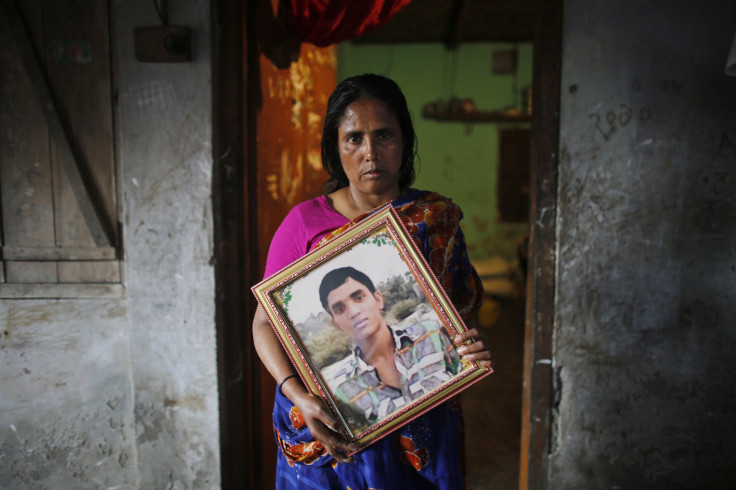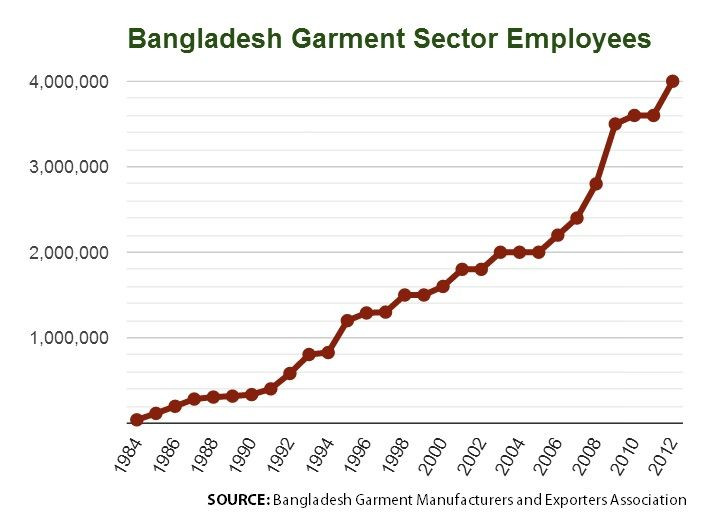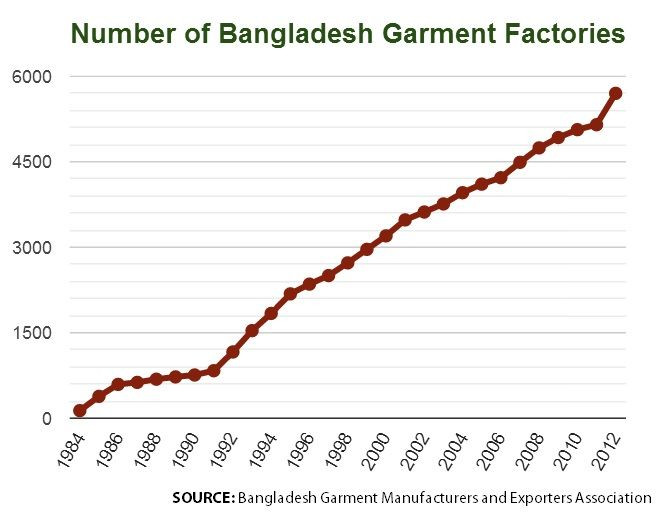Rana Plaza Disaster Anniversary Comes Around With Little Material Change Seen In Bangladesh Factories While Victims Languish

A year after the garment factory collapse in Bangladesh that took the lives of 1,129 people and triggered a debate about the developed world’s responsibility to protect the safety and health of workers supplying it with low-priced clothes, not much has changed despite a few signs of measurable progress.
In the wake of the accident, the Bangladeshi government announced its commitment to ensuring safe workplaces in the country’s single-most important industry, employing over 4 million people, each earning about $9 a week. And some multinational companies, under attack for ignoring safety concerns for the sake of cheap labor, vowed to aid victims’ families and fund efforts to audit factories to make sure they comply with fire safety and structural integrity codes.
Amid the rubble of the eight-story Rana Plaza building, rescue workers found garment labels from some of the world’s biggest retailers including Italy’s Benetton Group SpA (BIT:BEN), Wal-Mart Stores Inc. (NYSE:WMT) from the United States, Bonmarche Holdings PLC (LON:BON) of the UK, El Corte Inglés S.A., based in Madrid.
Those efforts have a decidedly mixed record. Injured victims, most of whom have been unemployed or underemployed since the accident, are only just now starting to see compensation payments. Hundreds of factories are being inspected for workplace safety violations but they represent just a small share of all the factories involved in the supply chain, many of which are used by unauthorized subcontractors. It remains difficult to track which companies are helping fund such efforts, due to the voluntary nature of their involvement.

“There are three important questions that I think have not been completely answered yet,” said Arvind Ganesan, director of Human Rights Watch’s Business and Human Rights Division. “One, who is contributing to improve conditions and how; secondly, is it readily apparent to the public what’s going on; and three, are conditions actually improving?”
Two separate organizations were formed after the tragedy to help upgrade the factories, but it is difficult to assess their efforts because they are ongoing.
The Bangladesh Accord for Fire and Building Safety has over 150 signatories including major European brands like Sweden's clothing company H&M Hennes & Mauritz AB (STO:HM-B) and French hypermarket chain Carrefour SA (EPA:CA) and 15 U.S.-based retailers, including Abercrombie & Fitch Co. (NYSE:ANF), based in New Albany, Ohio, and Fruit of the Loom, Inc. of Bowling Green, Ky.

The accord is a legally binding arrangement between international and local trade unions, labor rights groups and companies with the participation of the International Labour Organization (ILO). The accord collects funds from companies based on the volume of garments they source from the country, up to $500,000 a year. The money pays for factoty inspections and to train local engineers. The group says it's deployed 38 structural, fire and safety expert teams to assess about 1,500 facilities by the end of September.
The second group, the Alliance for Bangladesh Worker Safety, is comprised exclusively of U.S. and Canadian companies including Wal-Mart, The Gap Inc. (NYSE:GPS) and Kohl’s Corp. (NYSE:KSS). Alliance members are not legally bound to any financial or goal-oriented commitments, but the group has also been inspecting factories and pays workers for temporary shutdowns. So far, inspections have taken place in more than half of the roughly 700 factories used by members. Workers are paid from alliance funds during temporary shutdowns, and the group says it will train at least a million factory managers by July.
For the estimated 3,600 Rana Plaza family members and survivors, efforts to assist them have been disappointing. Only $15 million of a projected $40 million has been raised through an industry-backed compensation fund administered by the ILO, the Rana Plaza Arrangement, to pay for settling claims and distributing funds directly to victims. Two companies – British discount department store Primark Stores Limited and Canadian general merchandiser Loblaw Companies Ltd. (TSE:L) - were responsible for $10.4 million of those funds.
© Copyright IBTimes 2024. All rights reserved.






















